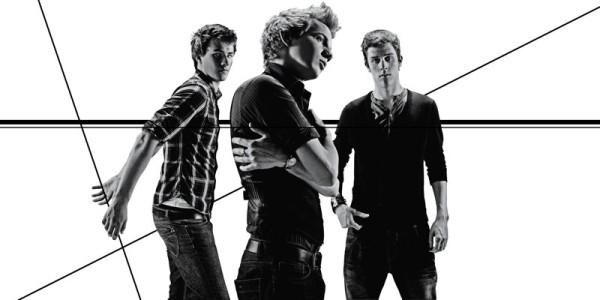
Hermes – No Age For Saints
Baroque, in pop music, is a slippery term. Moreover it is an absolutely vacuous term, an obnoxious identifier for artists who “began” to use instruments that weren’t guitars as an ignorant two-fingers to the grunge and lower-fi rock of the 1990s. The term is now even more arbitrary and useless at the end of the 2000s. Specifically with ‘baroque pop punk’ – as well as bearing zero resemblance to the sixteenth-century music the term ‘baroque’ initially pertained to – the exponents of the, erm, “genre” are literally indistinguishable from those of the humble and well established ‘regular pop punk’. West country chamber trio Hermes thus set out from the starting block with minus points for this awkward self-designation.
Debut single ‘No Age For Saints’ fails to exceed low expectations. The main riff is a gratingly simple octave alternation (the same that is treated wonderfully in HEALTH’s ‘Die Slow’) and the structure and vocal melodies are sufficiently nondescript for one to forget that any music is actually playing whilst listening to it. If you can imagine Dashboard Confessional being even more shit and boring, it would resemble this.
This is not to say that this foetal band won’t eventually find a distinctive sound, and should they do so they will become perfectly fine fare for young pop punk fans, but the style is a waterlogged field and they need to be an awful lot more inventive if they wish to wade on to anybody’s radar.
